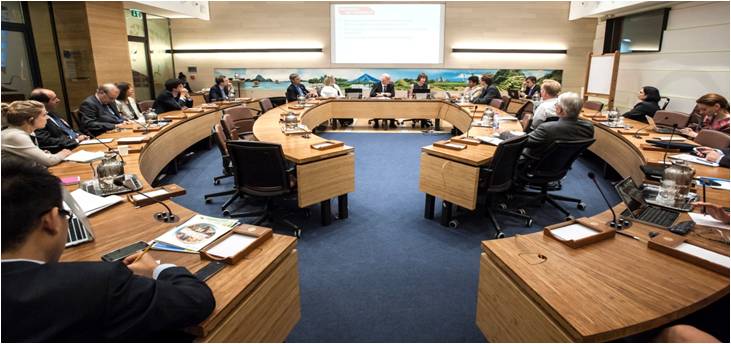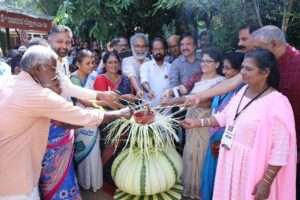 A vibrant agricultural education training system, linked to relevant multi-sector stakeholders both on the continent and internationally, is essential for talent development in agriculture. The 41st Committee on World Food Security (CFS) side event on “Cohesion on Talent Development” discussed the importance of this issue. Muhammad Ali, who represented GFRAS in this meeting share his experiences here.
A vibrant agricultural education training system, linked to relevant multi-sector stakeholders both on the continent and internationally, is essential for talent development in agriculture. The 41st Committee on World Food Security (CFS) side event on “Cohesion on Talent Development” discussed the importance of this issue. Muhammad Ali, who represented GFRAS in this meeting share his experiences here.
CONTEXT
Human capital is a critical driver of growth, sustainability and security across the entire food chain. Long-term sustainability in agriculture requires a locality-specific knowledge base, technical competence and soft skills such as partnering and critical thinking. The scenario requires up-skilling and re-tooling of the current agricultural workforce with diverse and more holistic educational programs. It requires incentives and campaigns that encourage young people to see agriculture as real possibilities for their career. The side event on Talent Development in Agriculture was organized as part of the 41st Committee on World Food Security (CFS) held at the FAO headquarters Rome, Italy on 15th October, 2014. This event was attended by representatives of the FAO, World Food Programme (WFP), GFRAS, Pulse Canada and several members of the EU and Swiss delegation.

THE PROGRAMME
The event was chaired by Bernard Lehmann, Secretary of State and Director General, Swiss Federal Office for Agriculture. The panel speakers were Santiago del Solar-Executive Director, Grupo CREA
(Argentina), Muhammad Ali, Global Forum on Rural advisory Services, (Pakistan), Robynne AndersonSecretariat to the International Agri-Food Network, IAFN (Canada) and Georgie Aley, Future Farmers Network (Australia).

In his opening remarks, Lehmann highlighted the importance of building cohesion on talent development in agriculture. Santiago del Solar in his highly passionate presentation described several approaches to attract young talent to agriculture especially using education and support. On behalf of the Global Forum on Rural Advisory Services (GFRAS,) I spoke on the importance of educating youth and women and providing them with appropriate training. I also briefly touched on GFRAS position paper, “The New Extensionist” and how GFRAS is approaching capacity development of extension and advisory services at different levels. Robynne highlighted the significant challenges that women and young girls still face in agriculture and the need to bring coherence to talent development programming. Georgie Aley, spoke on the ways young people in Australia are becoming more involved and motivated to work in agriculture. She also spoke about the Future Farmers Forum scheduled to be held in Australia in 2015.
The presentations were followed by a lively and interesting discussion that focused on how technological advancements in ICTs could be used for developing talent. Discussion also highlighted the importance of collaboration and sharing of experiences on talent development and learning from failures in this area. The need to ensure gender equality and the importance of youth-to-youth training were also discussed. The participants also argued for co-ordinated action to develop strategies and programmes for talent development in agriculture.
MY IMPRESSIONS
I strongly believe that this meeting made a good beginning in initiating concerted action among various agencies that are keen on addressing the issue of talent development in agriculture. Hopefully this meeting will promote knowledge sharing among agencies that are keen on this topic such as Food and Agricultural Organisation (FAO), Global Forum for Rural Advisory Services (GFRAS), Global Forum for Agricultural Research (GFAR), Young Professional for Agricultural Development (YPARD), Global Youth Innovation Network (GYIN) and others and will also lead to initiation of collaborative programmes to further the talents needed to feed a growing population.
Mr Muhammad Ali is Lecturer, Department of Agricultural Extension and Communication, Faculty of Crop and Food Sciences, PMAS-Arid Agriculture University, Rawalpindi, Pakistan ( muhammadali@uaar.edu.pk





Add Comment